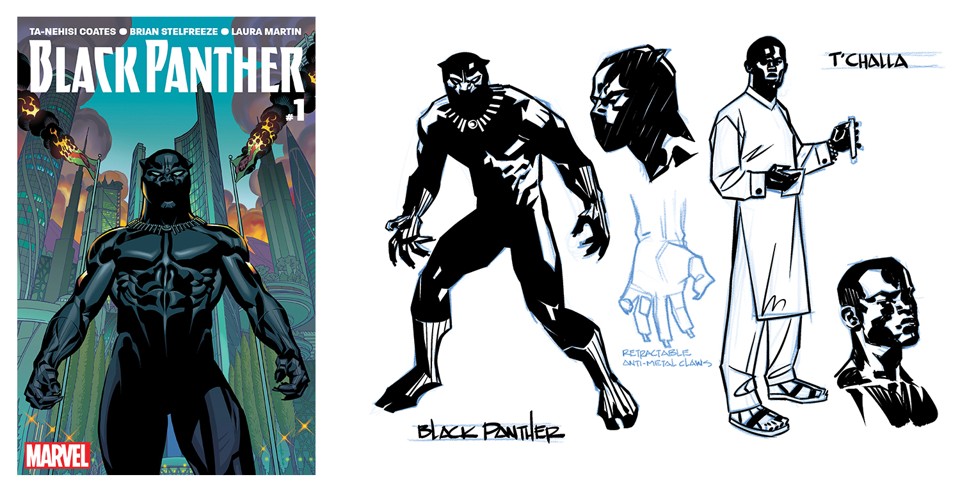Ta-Nehisi Coates was recently commissioned by Marvel to script an eleven-issue series of comics called Black Panther. The character Black Panther—who by day is the king of a fictional African country—appeared intermittently in various Marvel comics in the 1960s and '70s. Developing a new comic dedicated to the Black Panther was the realization of a childhood dream for Coates, who was a comic fiend as a kid. At The Atlantic, Coates writes about his approach to developing the series, noting the stylistic differences (and surprising similarities) between writing comics and writing journalism. Here’s an excerpt:
Despite the difference in style and practice of storytelling, my approach to comic books ultimately differs little from my approach to journalism. In both forms, I am trying to answer a question. In my work for The Atlantic I have, for some time, been asking a particular question: Can a society part with, and triumph over, the very plunder that made it possible? In Black Panther there is a simpler question: Can a good man be a king, and would an advanced society tolerate a monarch? Research is crucial in both cases. The Black Panther I offer pulls from the archives of Marvel and the character’s own long history. But it also pulls from the very real history of society—from the pre-colonial era of Africa, the peasant rebellions that wracked Europe toward the end of the Middle Ages, the American Civil War, the Arab Spring, and the rise of ISIS.
And this, too, is the fulfillment of the 9-year-old in me. Reading The Amazing Spider-Man comic books as a kid, I didn’t just take in the hero’s latest amazing feat; I wrestled seriously with his celebrated tagline—“With great power comes great responsibility.” Chris Claremont’s The Uncanny X‑Men wasn’t just about an ultracool band of rebels. That series sought to grapple with the role of minorities in society—both the inner power and the outward persecution that come with that status. And so it is (I hope) with Black Panther. The questions are what motivate the action. The questions, ultimately, are more necessary than the answers.
